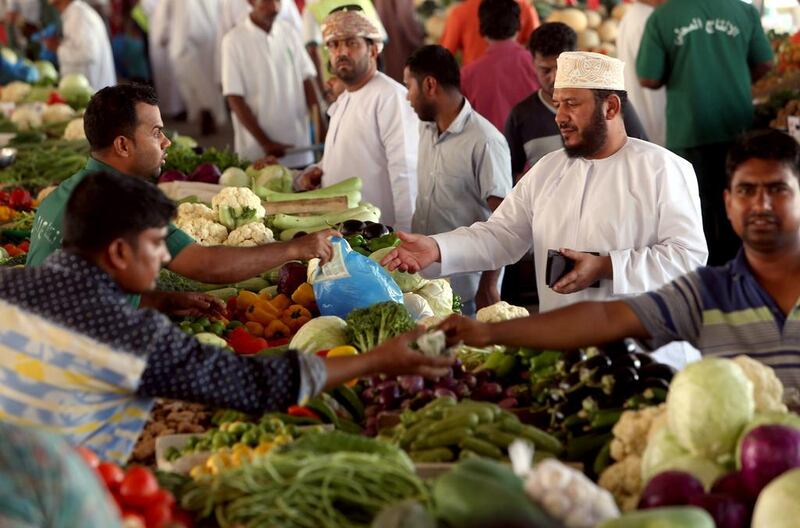MUSCAT // Kareem Balochi put his life at risk when he travelled by boat illegally from Gwadar in south-western Pakistan to Oman. The 26-year-old decided to make the gruelling journey so he could beg in Oman during Ramadan to send money home.
It took Mr Balochi nearly a day — travelling in a rickety vessel packed with sheep — before landing in the Musandam peninsula in the early hours of the morning before Ramadan started.
He was not alone. There were six other young men from the Pakistani port of Gwadar, located across the Arabian Gulf from Oman.
The seven men then travelled by road to Muscat on the first day of Ramadan to start their begging expedition. They hid in the back of the pickup truck when the road passed in and out of the UAE.
"Ours is one of many boats from Gwadar that travel daily to Musandam a month before Ramadan. We are all beggars. I would say at least 700 Pakistanis from Gwadar are here this Ramadan," Mr Balochi told The National.
“Life is difficult there [in Gwadar]. No jobs. I made about 880 Omani rials (Dh8,760) in Ramadan last year begging in Oman. I earn that for two years working as a labourer back home,” he said.
Worshippers and residents say an unusually high number of beggars from overseas are in the country this Ramadan begging at the mosques or walking door to door.
“Yemenis go through a war and they find Ramadan difficult to make ends meet than the usual months. They just cross the border illegally and find their way to Muscat,” said Hassan Al Khalili, one of the regular worshippers of a mosque in Muscat.
“But it is not just them begging. Syrians as well, Bangladeshis and Libyans. They eat iftar with us in the mosque and this time their number is much larger than last year,” said Mr Al Khalili.
A Syrian who identified himself as Mustafa was standing at the gate of a mosque holding a placard in his right hand, with Arabic scribbling that read: “Help a fellow Muslim in distress”.
In his left hand was a tin cup for worshippers to drop money in.
At the sight of a police patrol car, he and other beggars disappeared, only to come back a few minutes later.
Begging is illegal in Oman and those found guilty face up to three months imprisonment and deportation.
“It is not a good place to be in Syria right now,” said Mustafa.
“I came here illegally through the UAE-Oman border last week. I heard that the policemen in Oman are not that vigilant like it is in UAE.
“I would say there are at least 150 of my compatriots begging in Oman this month. We don’t beg in one mosque but in different places to escape police detection,” he said.
Salim Al Aulaki, a policeman on patrol in Muscat said they arrested 36 beggars from six different countries in the first two days of Ramadan this year.
“In the whole of Ramadan last year, we arrested about 140. This time about 20 per cent of that number in just two days. It means there are a lot of them here this Ramadan,” he said.
Beggars are also spotted waiting at the ATM machines as well as knocking on doors pestering people for money. Some wait at petrol stations carrying infants or showing fake medical documents to drivers filling up their cars with fuel.
“This man, speaking in a whisper, showed me a medical certificate saying he needed an urgent throat surgery back in his native country. He was here in Oman to collect money from begging to pay for it,” Suhail Al Sharji, a taxi driver based in Muscat, said.
“It looks fake [the medical document] but this explains how far these beggars go to get money from people in the streets.”
foreign.desk@thenational.ae





